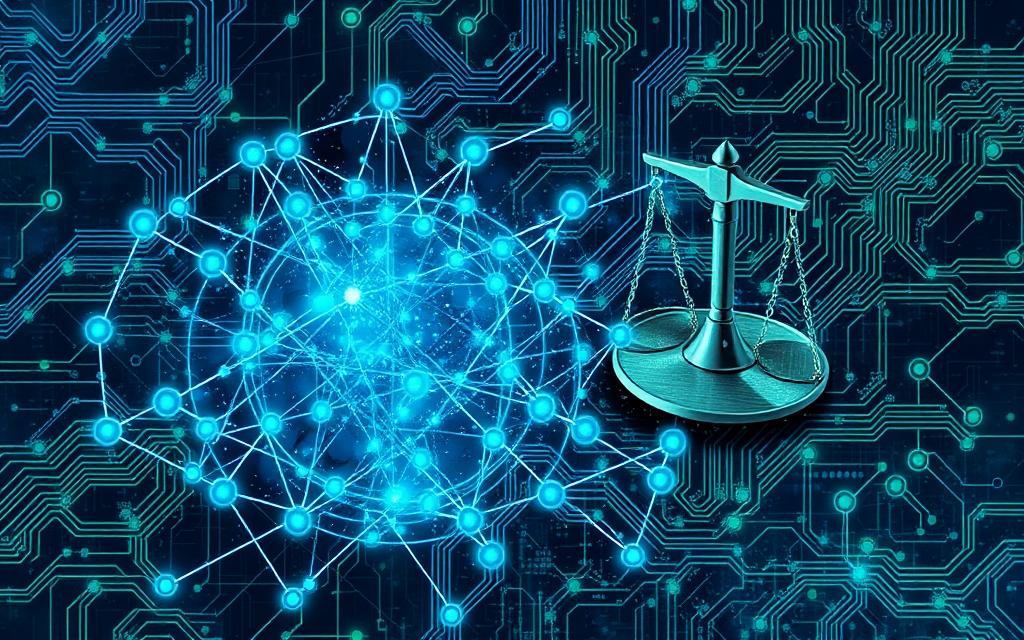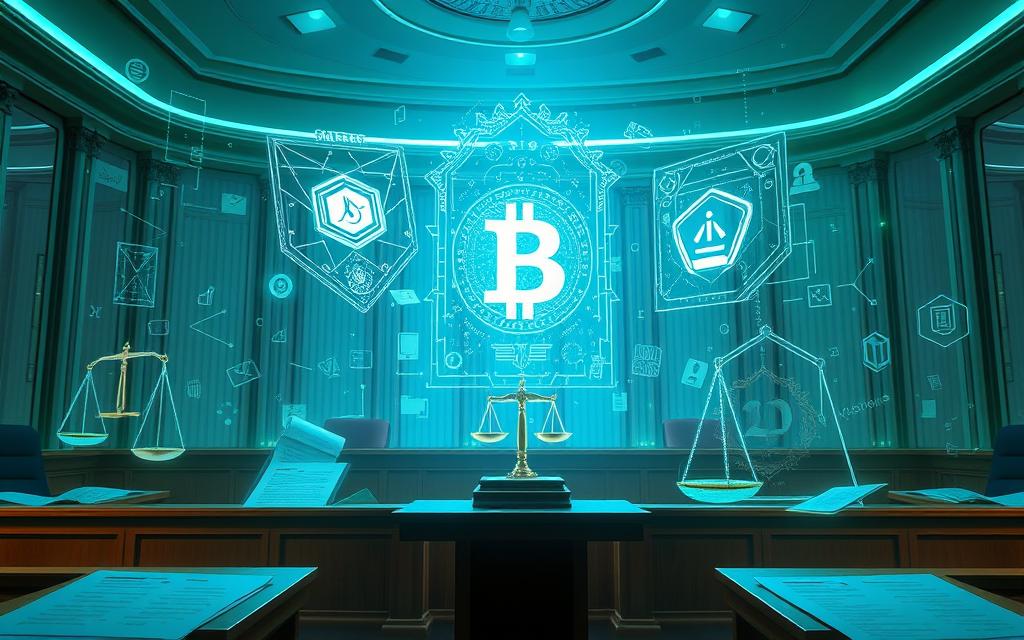In a world where blockchain is changing how we trust and agree, LegalDAO and legal engineering lead the way. Imagine a future where legal agreements are easy and fast, thanks to smart contracts. Just a decade ago, this idea seemed far-fetched. Now, it’s a reality that’s changing smart contract law and Web3 governance.
At the heart of this change are decentralized organizations that make decisions by consensus. Welcome to the era of decentralized governance. Here, users control their data, and transactions are safe, open, and can’t be changed. Tools like MetaMask and platforms like Ethereum are key to this self-governing ecosystem. These changes are more than just tech; they’re a big shift in how we see and deal with legal systems online.
Key Takeaways
- LegalDAOs use blockchain tech to create trust and decentralize legal processes.
- Legal engineering is critical for the development and governance of legally sound smart contracts.
- Web3 governance emphasizes user control and reduced reliance on central authorities.
- Ethereum and Solidity play key roles in creating and running smart contracts.
- Decentralized governance can lead to fairer systems with user ownership and enhanced security.
- Platforms like MetaMask enable secure cryptocurrency transactions and connections with decentralized applications.
Introducing Legal Engineering in the Web3 Landscape
The world is changing fast with Web3, bringing new ways to interact and process information. Legal informatics and computational law are key in this change, thanks to blockchain and decentralized apps. Legal engineering is now vital, blending law’s strictness with tech’s flexibility.
Definition and Core Principles of Legal Engineering
Legal engineering uses legal rules and computer science to solve big problems. It’s where law meets tech, aiming for clear rules and efficient systems. This helps make strong systems for blockchain and digital interactions.
The Role of LegalDAOs in Decentralized Governance
Blockchain tech has brought us DAOs, changing how we organize and make decisions. LegalDAOs use legal engineering to create clear, fair rules. They build trust and follow changing laws in digital spaces.
DAOs are changing corporate governance, making it more open and fair. To learn more, check out a study on DAOs’ impact on companies at Decentralized Autonomous Organizations.
Intersection of Smart Contracts and Computational Law
Smart contracts are at the heart of Web3’s legal engineering. They’re self-running agreements on blockchain platforms like Ethereum. They help many apps work smoothly, showing how law and tech can work together.
Deciphering Smart Contract Law Through Legal Tech
The world of smart contract law is getting clearer thanks to legal tech. This tech combines with Ethereum to help legal experts and developers work together. The use of Solidity and Remix IDE shows how tech helps in making and testing smart contracts.
For global legal advice in Web3, knowing legal tech is key. It makes digital deals safe and helps with DeFi and dApps.

When it comes to smart contract law, Ethereum’s platforms are vital. They let contracts run on their own when certain conditions are met. This makes legal work more efficient and secure, unlike traditional contracts.
Tools like MetaMask and Infura make it easier for users to work with these apps. This shows how legal tech helps manage digital and crypto assets well.
| Feature | Benefit | Technology |
|---|---|---|
| Automated execution | Increases efficiency and reduces human error | Smart Contracts |
| Decentralization | Reduces reliance on central authorities, ensuring a fair system | Ethereum, Solidity |
| Security | Enhanced data protection with encrypted transactions | Blockchain Technology |
| Interoperability | Seamless functioning across different platforms | Legal Tech Tools like Remix IDE |
The mix of legal tech and smart contract law is changing legal views and practices. As tech grows, it will keep changing legal work worldwide.
The Emergence of Decentralized Autonomous Organizations (DAOs)
DAOs are leading the way in digital innovation, changing how projects and businesses are run. They use smart contracts on blockchain platforms. This means they make decisions on their own, in a fair and open way.
This is key as they deal with complex blockchain rules and DeFi.
Connecting Smart Contracts to DAO Functionality
Smart contracts are key to DAOs. They automate tasks, reducing the chance of mistakes or unfairness. With smart contracts, DAOs can handle things like money and decisions automatically, based on set rules.
This makes DAOs more efficient and trustworthy in DeFi.
Blockchain Regulations Impacting DAOs
DAOs need to understand blockchain laws to operate. As laws change to include Web3, DAOs must adjust. They need to stay legal while keeping their decentralized spirit.
This is important for DAOs to stay legitimate and free in the blockchain world.
Tokenized Legal Services Fostered by DAOs
DAOs are changing legal services with tokenized solutions. They use blockchain to offer legal help in a new way. This makes legal services more affordable and open to everyone.
By using tokens, DAOs are changing the legal field and making it more accessible in Web3.
The table below shows how DAOs work with DeFi platforms. It highlights the new solutions DAOs bring:
| Feature | Implementation in DAO | Impact on Decentralized Finance |
|---|---|---|
| Tokenized Voting | Members use tokens to vote on proposals | Enhances democratic governance in financial decisions |
| Automated Treasury Management | Smart contracts manage and allocate funds | Improves fund security and allocation efficiency |
| Lending Platforms | DAOs provide decentralized lending services | Facilitates easier access to capital with low interest |
| Legal Service Tokens | Legal advice accessible via token exchange | Makes legal services more accessible and scalable |
DAOs are pushing the limits in governance, finance, and legal services. They use smart contracts and decentralized systems. As they grow, they will shape the future of governance and finance with blockchain, tokenized services, and Web3.
Understanding LegalDAO, Legal Engineering, Web3 Governance, Smart Contract Law
Web3 governance is changing how we think about power. It’s moving away from old ways to new, decentralized systems. LegalDAOs are at the heart of this change, blending legal rules with blockchain tech.
They make sure smart contracts work right and follow the law. This marks a new time for smart contract law. Now, apps run by communities, not big companies, are the norm.
Web3 brings power back to the people, reducing big company control. It’s built on decentralization, blockchain, and smart contracts. This means we have new ways to do finance and more, like voting and charity work.
Thanks to Ethereum and others, making apps is easier than ever. These apps change how we do things in finance, health, and learning. Legal engineering keeps these apps in line with the law, making sure Web3 grows right.
